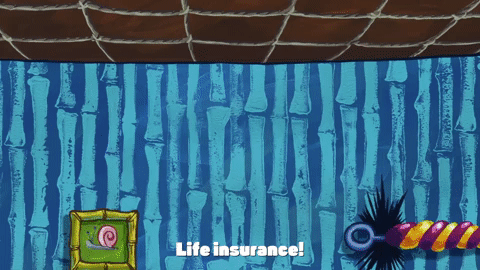A life insurance policy is an agreement between a policyholder and their insurance company that a death benefit, typically a lump-sum payment, will be provided to the insured’s beneficiaries in the event of the insured’s death.

Each life insurance policy comes with a monthly premium, and plans are chosen according to the needs of the policyholder. Roughly 60% of people in the United States have life insurance, and around one-fifth of those say that they don’t have enough coverage.
Unlike health insurance, life insurance is something that some people may never need to seriously think about or purchase. After all, if you don’t have any dependents who could benefit, it hardly makes sense to buy a policy.
For those who do need it, the first-time buying process can feel overwhelming. How much coverage do you need? Are you eligible for traditional coverage options? What policy is best? What company should you buy from? These are all great questions, and here are some of the most important things you need to understand to answer them.
Types of Coverage

There are a couple of basic types of insurance policies as follows. Which one you’ll need will depend on your financial goals.
Term Life Insurance
This is a temporary form of insurance that usually lasts for ten-year increments. Monthly premiums generally stay the same throughout the agreed-upon coverage period, but they may increase if you decide to extend your coverage. Term insurance is generally less expensive than other options, and it offers great flexibility. It can be great for young families who want to be covered until the kids are through college.
Whole Life Insurance
These plans offer lifetime insurance, generally for a higher premium than term. Premiums are usually fixed, however, and whole policies have a cash value that can be borrowed against when you need money. Accrued cash value may allow you to reduce, or eliminate, your premium payments later in life, but you’ll be paying significantly more in the beginning for the same amount of coverage compared to a term policy.
Final Expense Insurance
This is a type of whole life insurance frequently geared towards seniors since it primarily focuses on covering medical expenses and funeral costs after passing.
Those with a cancer diagnosis are sometimes pushed toward this type of insurance as well, especially if they’ve never had a previous policy. Many companies provide these types of policies to people across the world. Colonial Penn burial insurance is a very popular choice amongst seniors.
If you’re going through clinical trials or processes like cancer treatment in Manchester, CT, you may be able to get a guaranteed-issue policy, but these are significantly more expensive than other options and offer lower benefits.
The “DIME” Method
In addition to knowing what kind of policy to purchase, you need to know how much your policy should be for. The “DIME” method is frequently used in these calculations, and it goes like this.
Debt
You need a policy that can cover your outstanding debts (mortgage, credit cards, loans, etc.) in case of your unexpected death.
Income
Your policy needs to replace your income for anyone else who depends on it.
Mortality
Funeral costs and other final expenses should be covered.
Education
If you have children or anyone else you intend to send to college, your policy should cover these expenses.
You Can Sell Your Policy

There are a variety of reasons why you may not need your policy forever, and it’s possible to sell your policy to a third party. They provide a cash payment for your policy and pay your remaining monthly premiums in exchange for taking ownership of your policy and receiving the death benefit when the time comes. Some people choose to sell their policies to pay for retirement or simply improve daily life when they no longer need coverage.
American Life Fund is a third party buyer who offers viatical settlements, a specific type of life settlements. Viatical settlements are offered specifically to those with terminal illnesses, such as late-stage cancer, and are often used as a form of financial assistance for treatment or palliative care. Viatical settlements can be used for anything, however, and they offer a significant advantage over life settlements in that they’re tax-free.
Interesting related article: “What is Life Insurance?”

